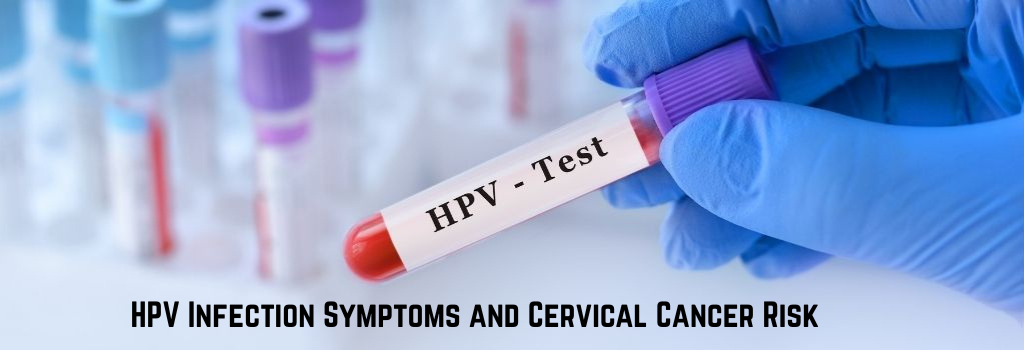Table of Contents
Cervical cancer remains a significant global health concern, yet it is one of the most preventable cancers when detected early. HPV home test kits have emerged as a powerful tool, allowing women to screen for high-risk HPV strains conveniently and privately. These kits are designed to identify HPV antigens linked to cervical cancer, offering a timely opportunity for intervention. With rising innovation accurate at-home detection is now more accessible than ever. This article answers the most common questions surrounding HPV home testing, detection methods, accuracy and manufacturer standards.
What is an HPV Home Test Kit and how can it help detect cervical cancer early?
An HPV home test kit is a medical device that allows individuals to collect a sample – typically a cervical or vaginal swab – within the comfort and privacy of their home. This self-collected sample can then be sent to a laboratory for analysis or in some cases, tested directly at home using rapid detection technology. The HPV antigen that these kits detect is a key marker of human papillomavirus infection, which may lead to cervical cancer if persistent and high‑risk strains are involved.
By enabling regular screenings without requiring a clinic visit, an HPV home testing kit can improve early detection rates. Early identification of high‑risk HPV types may prompt timely follow‑up care, which is crucial because cervical cancer typically develops over years from persistent infections. Note that home testing does not replace comprehensive medical evaluation, but it can complement healthcare access, especially for those with limited clinic availability.
What are the symptoms of an HPV infection that may lead to cervical cancer?
Most HPV infections, especially in the early stages, do not cause any noticeable symptoms, which is why regular screening with an HPV home test kit is so important. The virus often clears on its own within one to two years, especially in younger individuals. However, in cases where high-risk HPV strains persist, they may gradually cause changes in the cervical cells that can develop into cervical cancer over time.

How do HPV test kit manufacturers and suppliers ensure quality and reliability?
HPV test kit manufacturers and suppliers comply with stringent industry standards to deliver accurate, safe and reliable solutions for bulk procurement and large-scale distribution. sThese may include:
- Regulatory compliance: They may design kits to meet requirements set by regulatory authorities such as the FDA, CE or equivalent agencies, ensuring that test sensitivity and specificity remain high.
- Quality assurance systems: Most manufacturers implement robust quality control systems, such as ISO 13485 certification, to monitor production and performance.
- Validated testing methods: The home detection kits often use well‑validated molecular techniques or antigen‑detection assays that have been scientifically validated to reliably detect high‑risk HPV types.
Such practices enable HPV home test kit manufacturers to maintain batch-to-batch consistency, ensuring reliable results that support healthcare providers, distributors and large-scale screening programs focused on early detection of cervical cancer.
What types of HPV home testing kits are available and what methods do they use?
There are two main types of HPV home detection kits:
- Lab‑analyzed swab kits: You collect a swab sample, mail it to a laboratory and receive results online or via app. This method may be more sensitive and can test for specific high‑risk HPV strains.
- Rapid at‑home antigen detection kits: These may use lateral flow or similar technologies to deliver quick results at home, typically within minutes to hours.
The choice between different HPV home test kits often depends on turnaround time, level of detail, cost-efficiency and convenience – making it crucial for buyers to partner with HPV home test kit suppliers or manufacturers to ensure product reliability and market trust.
Can HPV home testing kits detect all types of HPV?
Not all HPV home testing kits detect every strain of the virus. Most reputable kits focus on identifying high-risk HPV types – such as HPV 16 and 18 – that are most commonly associated with the development of cervical cancer. These are the types that cause approximately 70% of cervical cancer cases globally.
Some advanced kits may test for a broader panel of high-risk strains, offering more detailed risk profiling. However, many do not test for low-risk HPV types, such as those that cause genital warts, since these are not linked to cancer development.
It’s essential to read the product specifications carefully or consult a healthcare provider if you’re unsure what the kit detects. Choosing a kit from a trusted HPV test kit manufacturer or supplier increases the likelihood that you’re testing for the strains that truly matter for cervical cancer screening.
Can HPV home test kit wholesale options benefit larger organizations or programs?
Yes, institutions like public health NGOs, screening initiatives or clinics may procure HPV test kit wholesale offerings. Wholesale procurement typically allows for:
- Lower per‑unit cost: Reducing financial barriers for offering kits widely in underserved populations.
- Standardized quality: By working with reputable wholesalers, the kits are likely to be uniform and validated, guarding against variable performance.
- Ease of logistics: Bulk purchasing from trusted HPV home test kit manufacturers simplifies distribution and inventory management.
These factors can help large-scale screening efforts roll out HPV antigen detection more effectively across communities.
How accurate are HPV home testing kits compared to clinical tests?
HPV home testing kits – especially those based on molecular detection of virus DNA or antigens – can be highly accurate when validated properly. In many studies, self‑collected samples show comparable sensitivity and specificity to clinician‑collected specimens for detecting high‑risk HPV types. However, certain variables may affect accuracy:
- Sample collection quality: User error in collecting the sample may lead to false negatives or inconclusive results.
- Type of test: Molecular PCR‑based kits may generally be more sensitive than antigen tests, though high‑quality antigen assays may still perform well.
- Instructions and support: Clear instructions and customer support from the HPV home test kit manufacturer or supplier may increase user success in obtaining reliable samples.
Overall, when performed correctly and from trusted manufacturers, home test kits can offer accessible, dependable screening that may align closely with traditional clinical methods.
How should one choose an HPV home testing kit manufacturer or supplier?
When considering an HPV home test kit manufacturer or HPV home test kit supplier, it can help to evaluate several key factors:
- Regulatory clearance or certification: Ensure the kit has approval from recognized bodies (e.g., FDA, CE).
- Scientific validation: Look for published studies demonstrating kit performance accuracy – especially in detecting high‑risk HPV antigens.
- Customer support and educational materials: Good suppliers may provide clear instructions, helplines or FAQs to help users.
- Privacy and data security: Especially for mail‑in kits or home testing apps, ensure your personal and health data are handled confidentially.
- Reputation and traceability: Trusted manufacturers commonly offer lot numbers, batch tracking and quality documentation.
Choosing a kit that balances scientific rigor, user‑friendliness and data protection can support confident and effective self‑screening.

Are HPV home testing kits relevant over time?
Absolutely. Because the biology of high‑risk HPV strains linked to cervical cancer remains consistent, head‑to‑head comparisons continue to reinforce the value of reliable home testing. As long as:
- The HPV antigen markers remain unchanged,
- The testing methodology stays scientifically validated,
And quality manufacturing practices are maintained, then these kits remain tools for screening over time. Reputable manufacturers or suppliers may also update kit instructions or improve assay sensitivity as new research emerges, keeping the tools current.
How should users handle results that are positive or negative?
- Negative result: This may suggest no high‑risk HPV detected at that time. However, regular follow‑up screenings may still be recommended per national guidelines (e.g., every 3–5 years).
- Positive result: The detection of high‑risk HPV antigens may warrant a follow‑up appointment with a healthcare provider for further assessment, such as a Pap smear, colposcopy or biopsy. It does not mean cancer is present, but it may indicate elevated risk.
Home test kits are screening – not diagnostic – tools. They can guide timely medical consultation but should not replace professional evaluation, especially after a positive or uncertain result.
Conclusion:
HPV home testing kits provide an essential gateway to early detection and prevention of cervical cancer. When sourced from Jal Medical, as a reputable HPV test kit suppliers & manufacturers, these kits offer safe, accurate and user-friendly solutions that empower individuals to take control of their reproductive health. While not a replacement for professional care, they serve as an important screening step. As technology evolves and awareness increases, the role of HPV home detection kits in public health continues to grow. Regular testing, informed choices and timely follow-up remain key to cervical cancer prevention.







